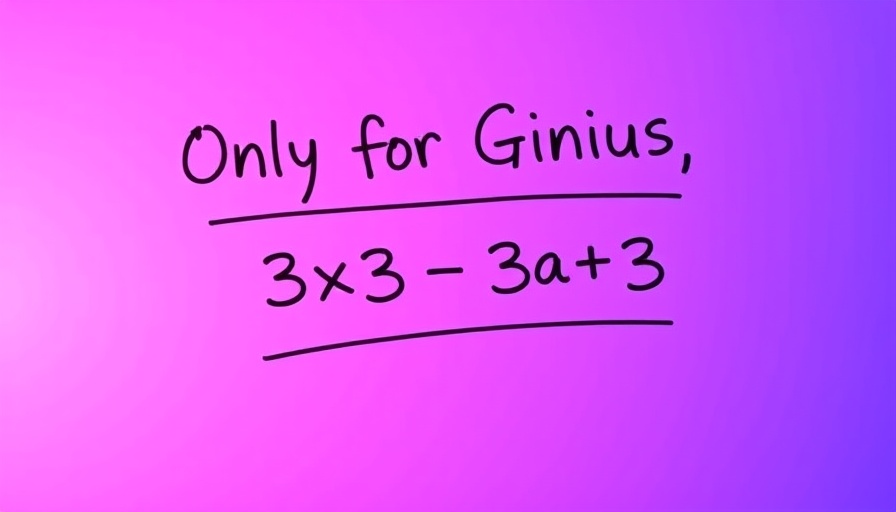
The Viral Fake Maths Event Taking Social Media by Storm
In a peculiar twist of social media dynamics, a seemingly innocuous Facebook event titled a "simple maths competition" has captivated users for over six months. Garnering an astonishing 51 million views in just the first quarter of 2025, it stands as the second most viewed post on Meta's platform. This post is not your typical event; it is a cleverly disguised engagement tool that has racked up more than 800,000 fictitious participants from users keen to solve a deceptively simple equation.
Unraveling Engagement Bait Tactics
At first glance, the event appears as a straightforward math challenge, featuring an image that reads "only for genius" followed by a simple arithmetic problem. Upon deeper investigation, one finds that this is not an isolated incident; similar posts featuring uncomplicated math puzzles have proliferated on social media for years, capturing users' intrigue and prompting conversations with strangers. The surge in comments—from earnest attempts to solve the riddle to heated debates over the correct methods—illustrates the engaging nature this post invokes.
The Microsoft Effect: Why Now?
Despite its viral status being somewhat of a mystery—especially since it has continued to thrive almost a year after its initial posting—its captivating image and mathematical allure seem to resonate widely among audiences. Social media observers suggest that such posts thrive on human psychology; they appeal not only to our need for social validation but also to our competitive spirits. In an era where AI-powered gadgets and the best tech tools for entrepreneurs dominate, simple engagement like this taps into something deeply engaging.
Future Trends: The Intersection of Math and Social Media
This incident raises questions about future social media trends, particularly regarding the nature of online engagement. With stats revealing people will engage with even simple math problems just to connect with others, it signals an interesting shift in how we interact online. As platforms evolve and AI tools become integral in the way we communicate, it stands to reason that such creative engagement methods will continue to grow.
As tech followers, we should remain vigilant about these types of posts that blur the line between genuine content and entertainment. Understanding these dynamics will help us navigate social media more effectively in the rapidly approaching landscape of advanced tech in 2025.
 Add Row
Add Row  Add
Add 




 Add Row
Add Row  Add
Add 

Write A Comment